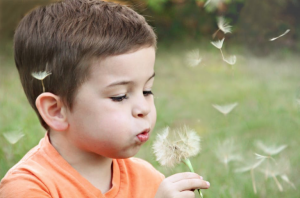
By: Datta Munshi MD, FAAP
As the COVID-19 pandemic rages on, its effects on our everyday lives feel never-ending. As [caregivers], we want to provide our children with a sense of consistency and normalcy in the middle of a time filled with uncertainty, fear, and change—not an easy task to accomplish.
We are all grappling with the ever-changing rules and demands placed on us by our “new normal” life at home, school, and work. It is mentally and physically exhausting work that often has no tangible reward. We may not be able to change this reality at the moment. However, we can focus our energies on “controlling what we can control” and practicing gratitude for the events—no matter how small—that enrich our days.
| The habit of gratitude can help us get off the treadmill of everyday life and acknowledge the small victories that we all have every single day. |
|---|
Reasons to be thankful: the health benefits
A growing number of studies have looked at the impact of gratitude on our overall health. The results show benefits to both our physical and emotional health. A recent study highlights the direct relationship between gratitude and happiness among young children.
Luckily, gratitude can be added to our daily routines without increasing our “to-do” and “to-learn” lists.

Beyond thanks: 5 ways to nurture gratitude in children
Teaching polite manners, such as saying “thank you,” isn’t the only way to promote gratitude in children. Here are some tips to help build a habit of gratitude in your children.
- Focus on what went “right” each day. Take a couple of minutes at bedtime to write down or talk about at least one thing, no matter how small, or one part of the day that you and your family are grateful for. Studies have shown that gratitude improves sleep quality and decreases symptoms like unexplained aches and pains. By focusing on the positive parts of the day, gratitude helps set us up for a positive outlook for the day to come.
- Don’t save conversations about gratitude for Thanksgiving. Whether driving back home or enjoying a family game night, talking about the people you are grateful for in your life—and why—can go a long way. Think about positive traits in others that make us feel grounded, loved, and give us a sense of security. Reminding ourselves of those high-quality relationships can help us manage anxious and sad thoughts more effectively.
- Promote sincere verbal or written expressions of thankfulness. Creating a habit of thankful expression helps to increase self-esteem, mental strength, and positive social behaviors—such as helping, sharing, and volunteering. All of these are vital to strengthening our resiliency, a trait that we all need right now.
- Find ways to help others in need. It’s important to encourage children and teens to take active steps in providing service to their communities. Help them find causes that they are interested in, such as volunteering for a nursing home or raising money for charity. By participating in such giving activities, they will gain a sense of purpose and develop skills that will help them succeed in life.
- Be a role model. One way to teach your children to be more grateful is by actually being more grateful yourself. Show them your appreciation on a regular basis and they will learn to follow in your footsteps. You can start by modeling good behavior and practicing positive discipline techniques.

Remember
Spending just a few minutes a day to practice gratitude with our families can have a positive impact on how we address stressful situations life unexpectedly throws our way. It is especially effective as part of an overall family wellness plan that focuses on healthy eating, sleeping, screen time habits, and daily physical activity. Regular check-ups with your pediatrician are also a wonderful opportunity to further discuss gratitude and other ways to improve your family’s physical and emotional resilience.
Be sure to talk with your pediatrician if you have any concerns about your child’s health and wellbeing.

Shared via American Academy of Pediatrics
We’d love to hear from you – reach out to us on Facebook, Instagram, and check out the other posts on the blog!
If you are looking for an exceptionally skilled nanny or private educator for your child, we’d love to hear from you!
If you feel that you have what it takes to become an Adventure Nanny or private educator, reach out to us.
